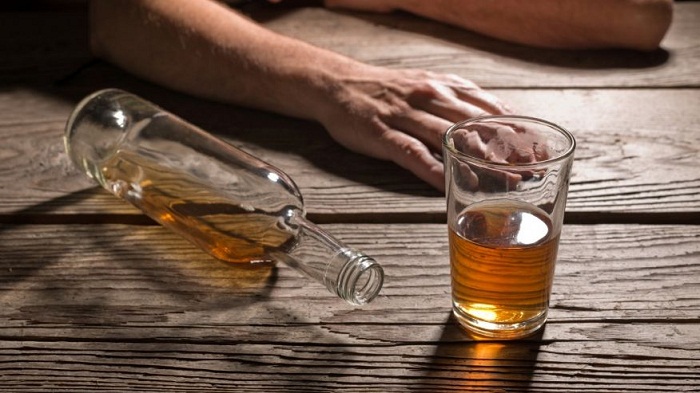Benton explains that someone who drinks a little bit daily may be fine while someone else who drinks too much just a few times a year may be putting her health at risk. Or vice versa. It all comes down to the role alcohol plays in your life. "You can learn a lot about your own or another person`s potential for alcohol abuse by asking this one question: Can you imagine your life without it?" If it`s hard for you to imagine going to a party or out to dinner without drinking, that could signal a problem. (Read one woman’s story: “I was a champion swimmer until alcohol took over my life.”)
Daniel Hall-Flavin, MD, an addiction psychiatrist at Mayo Clinic, agrees that there are no hard-and-fast rules. That said, it`s useful to keep in mind the National Institutes of Health guidelines for low-risk drinking. For women, that`s no more than 3 drinks on any given day and no more than 7 drinks per week. For men, it`s no more than 4 drinks on any given day or 14 per week.
No matter how much or little you are drinking, if you experience any of the following warning signs, it`s a good idea to talk to a medical professional, according to both Benton and Hall-Flavin.
You`re self-medicating.
If you reach for a bottle when you’re feeling anxious or blue, or as a way to cope with physical pain, see a doctor. You may need treatment for depression or an anxiety disorder.
You`ve started drinking more.
Think about the amount you’ve been drinking over the last 6 months or a year. Has it gradually (or not so gradually) gone up over time? Does it take 3 glasses of wine to experience the relaxation you once enjoyed after one? If so, your drinking may be harmful.
It`s always on your mind.
Do you obsess about alcohol, thinking about when you`ll have your next drink? Are you thinking about drinking when you are doing other things, such as working or spending time with family? People who have a healthy relationship with alcohol don`t tend to think about booze this way.
You have a hard time cutting yourself off.
When you set limits around alcohol, such as not drinking a few nights a week or stopping after two drinks, do you have trouble sticking to them? If you have repeatedly broken these kinds of promises to yourself, you likely need help to manage your drinking.
You turn into a different person.
Do you deviate from your morals and ethics or otherwise behave in reckless or thoughtless ways you wouldn`t otherwise when you drink? Whether you wind up driving drunk or have little lapses, like gossiping or betraying a confidence, not acting like yourself while under the influence is a red flag.
Getting help
If you think you may have a problem—even if you doubt that you`re a full-fledged "alcoholic"—there are many things you can do to get control. For starters, take an online asssessment at rethinkingdrinking.niaaa.nih.gov or alcoholscreening.org, which will provide you a quick gauge of the risks involved with your current level of drinking.
Many experts also recommend taking a booze break for 30 days as a way to explore the role drinking plays in your life. If that abstinent period turns out to be a major struggle, it`s time to talk to your primary care physician or an addiction specialist.
More about:
















































